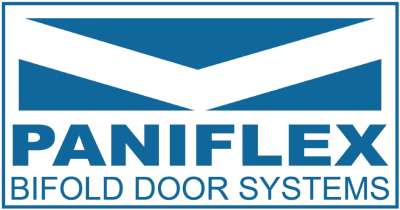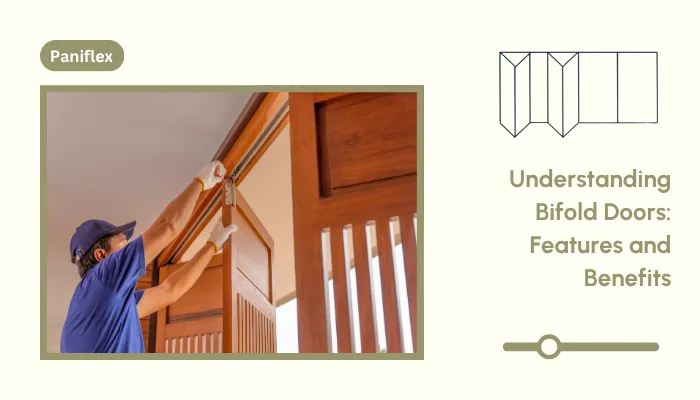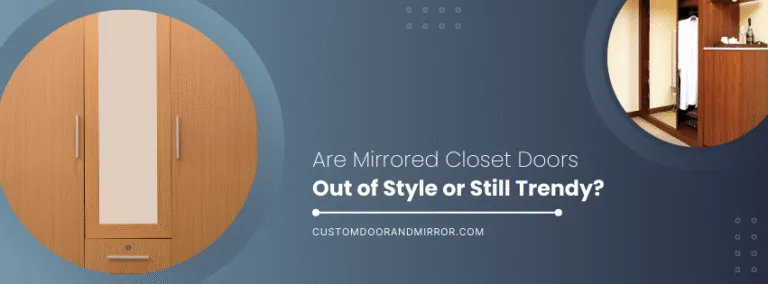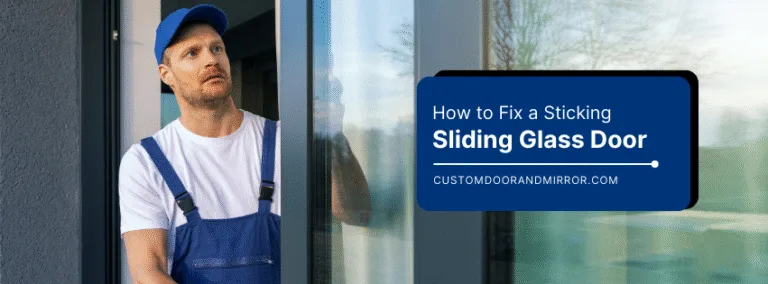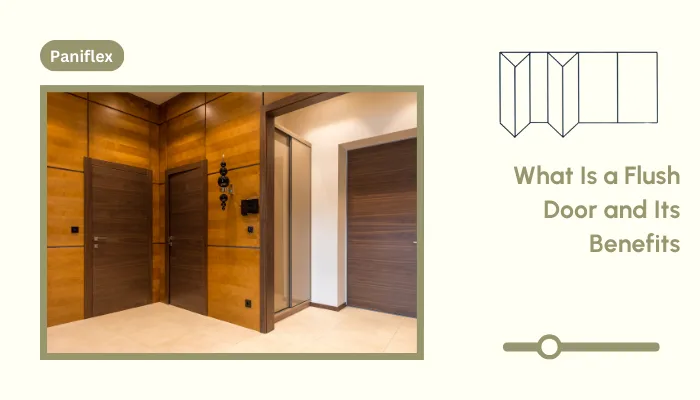Bifold doors have become a versatile solution for both residential and commercial spaces. With panels that fold neatly to the side, they offer wide access openings while saving valuable floor space. From closets and pantries to patio entrances and room dividers, their applications are as varied as their designs.
We know how challenging it can be to balance functionality, space constraints, and looks when selecting door systems for a project. This guide explores what makes bifold doors unique and why they remain a favorite among modern architects and builders.
TL;DR
- Bifold doors are space-saving solutions that fold neatly, offering wide access in compact areas.
- They come in various materials, configurations, and finishes to suit residential and commercial applications.
- Common issues like sticking panels or misalignment can be minimized with quality hardware and proper installation.
- Custom fabrication ensures a perfect fit and long-lasting performance, reducing maintenance needs over time.
- Bifold doors uniquely combine space efficiency, design versatility, and functional benefits, making them a practical choice for spaces.
What Are Bifold Doors?
Bifold doors are made up of two or more panels connected by hinges that fold together as they slide along a track. When opened, the panels stack neatly to one or both sides of the opening, allowing for maximum access without taking up much floor space. This makes them especially useful in tight areas where traditional hinged doors or even sliding doors may not be practical.
Commonly found in closets, laundry rooms, and pantries, bifold doors are also increasingly popular for larger openings, such as patio entrances, and as flexible room dividers. They are available in a variety of materials, including wood, glass, and aluminum, with design options ranging from simple, flat panels to elaborate, custom styles.
Beyond their space-saving design, bifold doors offer a range of features that enhance their functionality and appeal. Let us explore these key characteristics in detail.
Suggested Read: How to Fix a Large Gap Under the Door?
Key Features of Bifold Doors
Bifold doors stand out for their ability to combine functionality and style in a compact design. Their features are tailored to meet the needs of modern spaces, whether used in small residential rooms or expansive commercial areas. Understanding these characteristics helps in specifying the right door system for each project.
1. Space-Saving Design
Bifold doors fold neatly against the wall, maximizing usable floor space. They are ideal for areas where swing clearance is limited, such as closets or narrow corridors.
2. Versatile Configurations
Available in two-panel, four-panel, or multi-panel setups, bifold doors can cover openings of various sizes. Tracks and hardware systems support smooth operation even in larger installations.
3. Material and Finish Options
From classic wood to sleek glass and durable aluminum, bifold doors offer a high level of design flexibility. Finishes and panel styles can be customized to match any architectural or interior theme.
4. Easy Operation with Modern Hardware
Contemporary hardware systems ensure panels glide smoothly and fold with minimal effort. Quality tracks and hinges reduce maintenance needs over time.
While these features define how bifold doors work, the actual value lies in the benefits they bring to a space. From enhancing access to elevating appearance, they offer practical advantages that make them a preferred choice in many projects.
Suggested Watch: Learn more about bifold doors in this educational video.
Benefits of Using Bifold Doors
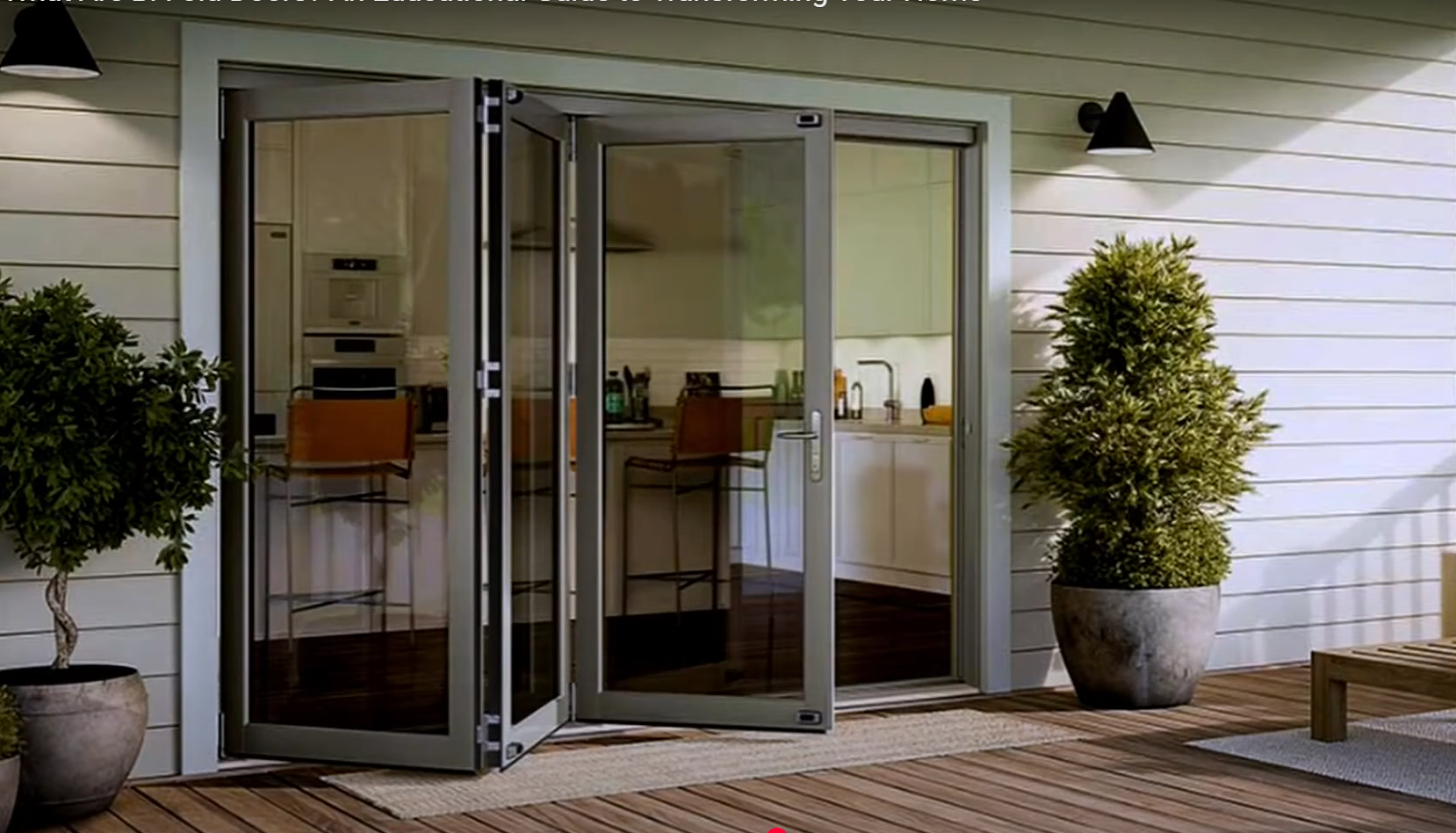
Bifold doors are more than just a space-saving solution. Their design offers both functional and design advantages, transforming the way a space looks and performs. Here are the key benefits they offer across residential and commercial settings.
- Maximizes Access: Panels fold away fully, creating wide, unobstructed openings for easy movement of people or large items.
- Enhances Natural Light: Glass bifold doors allow light to flow between spaces, brightening interiors and reducing the need for artificial lighting.
- Saves Floor Space: Folding panels require minimal clearance, ideal for tight or high-traffic areas.
- Customizable to Fit Any Style: Available in various materials, finishes, and configurations to match both modern and traditional designs.
- Adds Visual Appeal and Value: Their clean lines and versatility contribute to a refined, high-end look that increases property value.
These benefits make bifold doors a practical choice for a wide range of uses. From compact residential interiors to large commercial spaces, they adapt seamlessly to diverse design requirements. Next, we will examine where bifold doors are most effective.
Suggested Read: How to Install Bifold Door Snugger: A Basic Guide
Common Applications of Bifold Doors
The adaptability of bifold doors allows them to fit into a variety of settings, both residential and commercial. Their ability to open wide and stack compactly makes them ideal for spaces where flexibility and access are priorities.
1. Closets and Storage Areas
Bifold doors are a popular choice for closets, pantries, and utility rooms. Their folding mechanism provides full access without the need for large swing clearance.
2. Patio and Balcony Entrances
In exterior applications, glass bifold doors create seamless indoor-outdoor transitions. They allow expansive openings while maintaining a sleek appearance when closed.
3. Room Dividers in Open-Plan Spaces
Bifold doors can serve as temporary partitions in open layouts. They provide privacy when needed and fold away to restore a unified space.
4. Commercial Spaces
Bifold doors are used in restaurants, storefronts, and conference rooms, providing flexible options for managing space and traffic flow.
While bifold doors are highly versatile, they are not the only option. Comparing them with other door systems helps clarify where they excel and when another style may be more suitable.
Bifold Doors vs Other Door Systems
Choosing the right door system depends on space, functionality, and design goals. Bifold doors offer unique advantages, but understanding how they compare to alternatives like sliding, pocket, and hinged doors helps in making an informed decision.
| Feature | Bifold Doors | Sliding Doors | Hinged Doors | Pocket Doors |
|---|---|---|---|---|
| Space Efficiency | Excellent – folds neatly to the side | Good – panels overlap | Limited – requires swing clearance | Excellent – disappears into the wall |
| Access Width | Full opening available | Partial – one panel fixed | Full but needs space to swing | Full opening available |
| Design Flexibility | High – multi-panel, materials, finishes | Moderate – large glass panels | High variety of styles | Moderate – limited configurations |
| Ease of Installation | Moderate – requires precise alignment | Simple for most installations | Easiest to install | Complex – needs a wall cavity |
| Maintenance Needs | Moderate – track and hinge upkeep | Low – fewer moving parts | Low | Moderate – hidden hardware access |
Bifold doors strike a balance between wide access and space efficiency, making them ideal where traditional hinged or sliding doors fall short. Their versatility supports both functional and design requirements across a wide range of projects.
Before specifying bifold doors, it is important to evaluate several key factors that impact performance and long-term satisfaction. Let us look at what to consider when selecting the right bifold system.
From the Community: Learn more about soundproof bifold doors in this Reddit thread.
Factors to Consider When Choosing Bifold Doors
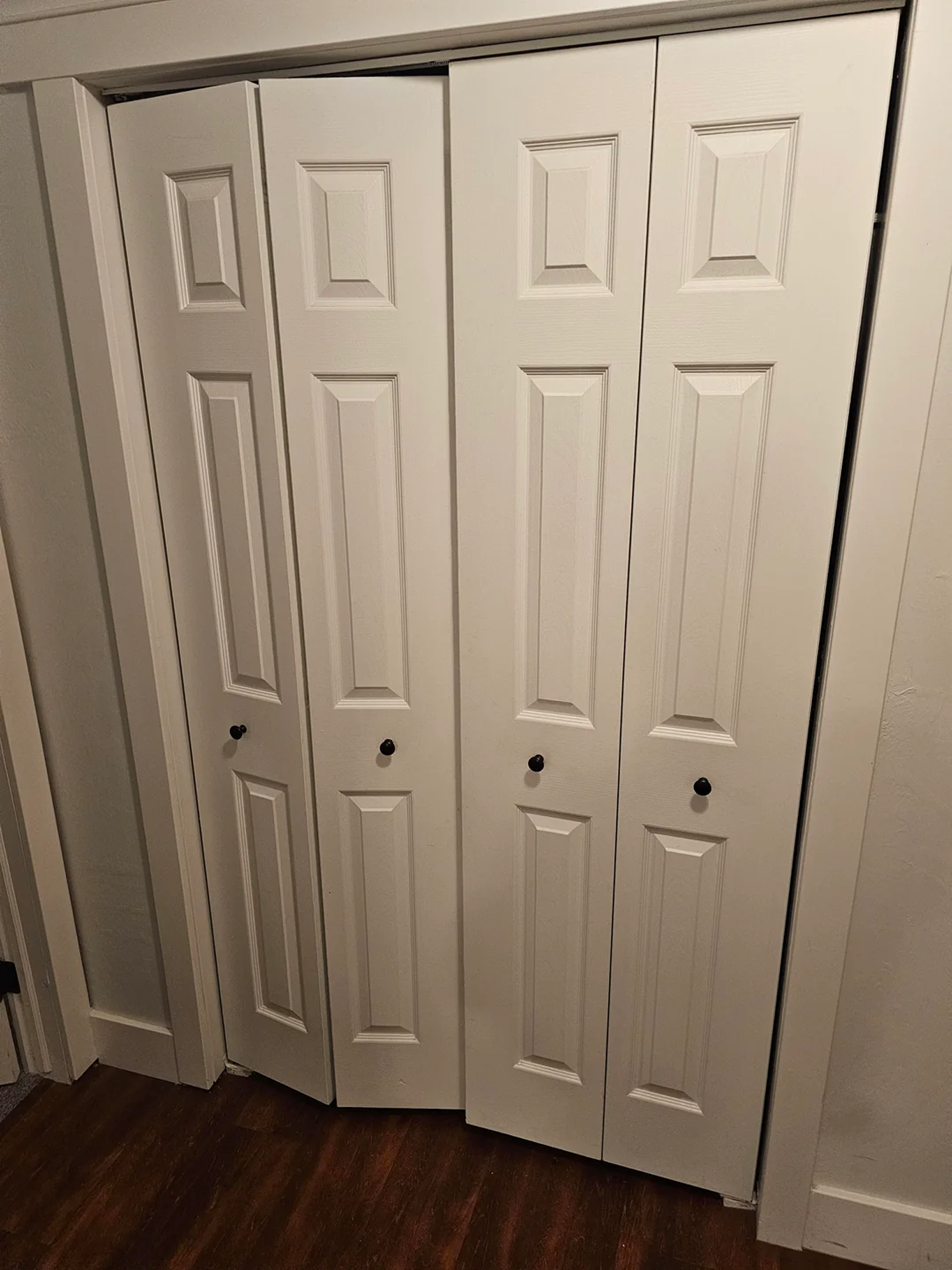
Specifying bifold doors requires attention to technical and design details to ensure they perform well in their intended space. From dimensions to hardware quality, each factor plays a role in achieving the right balance of functionality and style.
1. Opening Size and Layout
Measure the opening accurately to determine the number of panels and track type needed. Consider how the panels will fold and where they will stack without obstructing adjacent spaces.
2. Material Selection
Choose materials based on the environment and design requirements. Wood offers warmth, aluminum provides durability, and glass allows natural light flow.
3. Hardware and Track Quality
Invest in high-quality hinges and tracks for smooth, reliable operation. Poor hardware can lead to alignment issues and increased maintenance requirements.
Thoughtful planning during selection minimizes installation issues and ensures the bifold door system meets both functional needs and design expectations.
Bifold doors bring both practicality and elegance when chosen carefully. The following section discusses the typical problems associated with bifold doors.
Suggested Read: Guide To Sizing A Rough Opening For Bifold Doors
Common Issues with Bifold Doors
Even well-installed bifold doors can develop issues over time due to frequent use, environmental factors, or wear on the hardware. Recognizing these issues early and knowing how to resolve them helps maintain smooth operation and prolong the system’s lifespan.
1. Panels Sticking or Not Folding Properly
This often results from debris in the track or misaligned hinges. Regular cleaning and adjusting hinge screws can restore proper folding and prevent excessive strain on the panels.
2. Loose or Worn Hinges
Over time, hinges may loosen due to repeated folding. Tighten hinge screws periodically and replace worn hardware with high-quality components to ensure stability and prolong the lifespan of your device.
3. Tracks and Rollers Wearing Out
Tracks can collect dirt or sustain damage, and rollers may wear with age. Clean tracks regularly and replace rollers if doors do not glide smoothly. Opt for premium rollers during installation for longer performance.
4. Alignment Issues After Installation
Improper installation or settling structures may cause alignment problems. Adjust pivot brackets and align panels carefully, or consult a professional for complex adjustments.
While these issues are common, many can be minimized through thoughtful design and quality manufacturing. Custom-fabricated bifold doors often address these pain points with better materials, precise engineering, and tailored solutions.
How Custom Fabrication Enhances Bifold Door Performance
Off-the-shelf bifold doors may not always meet the unique demands of a space or project. Custom fabrication enables precision-engineered solutions that fit perfectly, operate smoothly, and retain their integrity over years of use.
- Precise Fit: Custom doors are precisely measured and fabricated to fit exact opening dimensions, eliminating gaps and alignment issues and removing the need for on-site adjustments or modifications.
- Durability: Higher-grade woods, metals, and glass resist wear and environmental stress, reducing maintenance requirements.
- Engineered Hardware Systems: Superior tracks and hinges provide smoother operation and reduce issues such as sticking or sagging.
- Design Freedom: Custom fabrication supports creative panel styles, finishes, and glazing options that align with architectural themes.
With these insights, you can make informed decisions about bifold doors that align with both functional needs and design aspirations. Next, let us wrap up with key takeaways and explore how Custom Door & Mirror can support your project.
Why Choose Custom Door & Mirror for Your Bifold Door Needs?
Selecting the right partner for custom bifold doors can significantly impact project outcomes. Custom Door & Mirror brings expertise, precision, and flexibility to meet diverse design and performance requirements.
- Unique Openings: Every door is precisely built to exact measurements, ensuring seamless installation and eliminating the need for on-site modifications.
- Finish Options: From premium woods to sleek glass and durable aluminum, our offerings align with any design vision.
- Durable Hardware Systems: High-quality tracks and hinges support smooth operation and reduce maintenance needs over time.
- Solutions for Any Scale: Whether it is a single residential closet or multiple commercial installations, we deliver with consistency and attention to detail.
- Expert Support: Our team collaborates closely to ensure every door meets technical and design expectations.
Custom Door & Mirror provides custom bifold doors that combine functionality, durability, and design flexibility. Our solutions are engineered to perform and crafted to enhance spaces of any scale.
Conclusion
Bifold doors combine space efficiency, versatility, and appeal, making them an excellent choice for both residential and commercial applications. When specified and installed correctly, they provide long-lasting performance and enhance the usability of any space.
At Custom Door & Mirror, we specialize in crafting high-quality custom bifold doors tailored to your exact specifications. With a variety of materials, finishes, and configurations, our doors are designed to meet the demands of modern projects while ensuring smooth operation and durability.
Explore our collection or consult with our team today to find the perfect bifold door solution for your next project.
Frequently Asked Questions
1. Why are bifold doors no longer popular?
Bifold doors face competition from sliding and pocket doors, which offer cleaner lines and fewer moving parts. Some users find bifold tracks harder to maintain. However, they remain popular where wide access and compact stacking are priorities.
2. What are the different types of bifold doors?
Bifold doors vary by material (wood, glass, aluminum), panel configuration (two, four, multi-panel), and application (interior, exterior). Options include solid panels, louvered designs for ventilation, and glazed panels for light transmission between spaces.
3. What are the negatives of bifold doors?
Bifold doors require regular maintenance of the track and hinges to prevent sticking. They can be less energy-efficient than solid doors and may allow more sound transfer. In large openings, heavier panels may need stronger hardware to prevent sagging.
4. What is the new trend instead of bifold doors?
Sliding glass doors and pocket doors are gaining popularity for their minimalist appearance and space efficiency. Large-panel sliding systems are favored in modern designs, offering uninterrupted views and smoother operation with fewer exposed hardware elements.
